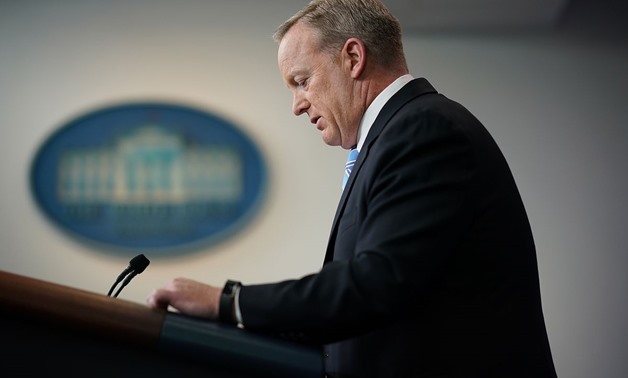
White House Press Secretary Sean Spicer briefs members of the media during a daily briefing at the White House June 26, 2017 in Washington, DC.
WASHINGTON - 5 September 2018: With Syria apparently on the brink of a new spasm of violence, the White House warned on Tuesday that the United States and its allies would respond "swiftly and appropriately" if Syrian President Bashar al-Assad used chemical weapons again.
The White House also said in a statement that it was closely monitoring developments in Syria's rebel-held Idlib region, where the Syrian government is expected to mount an offensive that could spark a humanitarian disaster.
President Donald Trump in the past year and a half has twice ordered U.S.-led air strikes against targets in Syria in response to what Washington called the Assad government's use of chemical weapons against civilians.
In a tweet on Monday, Trump warned Assad and his allies Iran and Russia not to “recklessly attack” Idlib province and warned that hundreds of thousands of people could be killed.
The Kremlin on Tuesday dismissed Trump’s warning to Syria not to launch an offensive in Idlib, saying the area was a “nest of terrorism."
The northern province and surrounding areas are the last major enclave held by insurgents fighting Assad, who has been backed by both Russian and Iranian forces in Syria’s seven-year-old civil war. They are home to some three million civilians.
White House spokeswoman Sarah Sanders said the United States is closely monitoring the situation in Idlib province and that Trump has warned an attack there would be a reckless escalation of an already tragic conflict and would risk the lives of hundreds of thousands of people.
"Let us be clear, it remains our firm stance that if President Bashar al-Assad chooses to again use chemical weapons, the United States and its allies will respond swiftly and appropriately," she said.
She said the United States will work with its allies to find a lasting diplomatic solution to resolve the hostilities in Syria under the auspices of United Nations Security Council Resolution 2254.

Comments
Leave a Comment